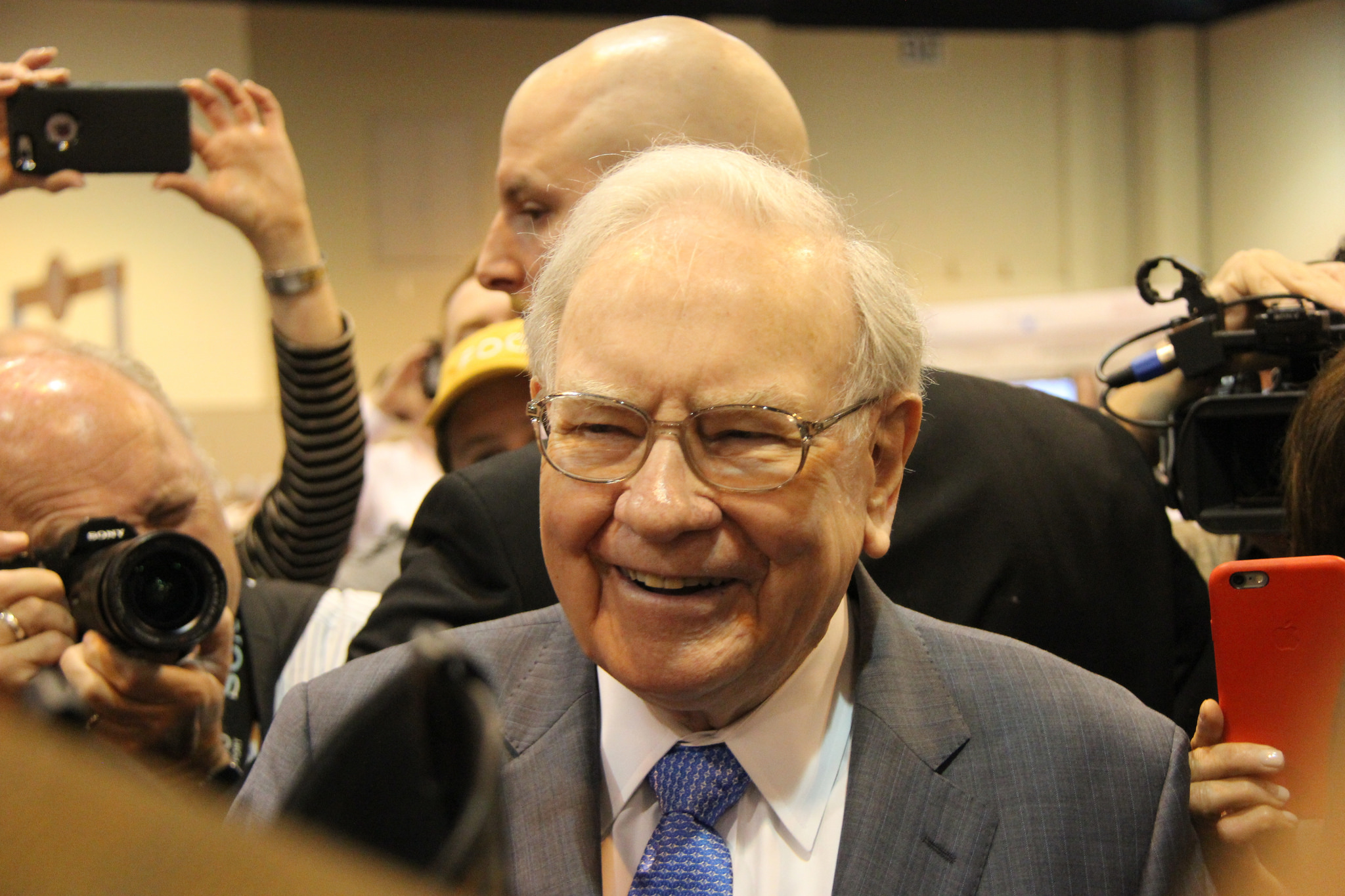Late last month, famed investor Warren Buffett dropped his annual shareholder letter at Berkshire Hathaway (NYSE: BRK-B) (NYSE: BRK-A). As usual, the letter was filled with valuable nuggets for investors, ranging from how the Tax Cut and Jobs Act lifted earnings to why investors should never borrow money to buy stocks.
Here's a look at three takeaways from Berkshire's 2017 annual letter that investors shouldn't overlook.

Warren Buffett. Image source: The Motley Fool.
1. Searching for "huge acquisitions"
It's no secret that Berkshire's cash hoard has been mounting. By the end of 2017, Berkshire's war chest had grown from about $86 billion at the end of 2016 to $116 billion in cash and U.S. Treasury bills (with an average maturity of 88 days). Given Berkshire's prowess in putting cash to work in lucrative investments, this cash presents a massive opportunity for Berkshire shareholders. But until this cash is invested, it's not providing any material gains in Berkshire's book value.
Fortunately, Buffett is intent on putting this cash to work as soon as possible.
Berkshire's goal is to substantially increase the earnings of its non-insurance group. For that to happen, we will need to make one or more huge acquisitions. We certainly have the resources to do so. ... This extraordinary liquidity earns only a pittance and is far beyond the level Charlie and I wish Berkshire to have. Our smiles will broaden when we have redeployed Berkshire's excess funds into more productive assets.
2. Irrational acquisitions
Speaking of acquisitions, one of the reasons Berkshire has failed to deploy its growing cash hoard is because it couldn't find large stand-alone businesses it wanted to own that traded at sensible purchase prices. "Indeed, price seemed almost irrelevant to an army of optimistic purchases," Buffett said about the current merger environment.
But what spurs the sort of environment in which prices rise to irrational levels? Buffett colorfully detailed the nonsense factors driving companies to make deals without giving price enough weight:
Once a CEO hungers for a deal, he or she will never lack for forecasts that justify the purchase. Subordinates will be cheering, envisioning enlarged domains and the compensation levels that typically increase with corporate size. Investment bankers, smelling huge fees, will be applauding as well. (Don't ask the barber whether you need a haircut.) If the historical performance of the target falls short of validating its acquisition, large "synergies" will be forecast. Spreadsheets never disappoint.
This culture, of course, was fueled by "ample availability of extraordinarily cheap debt," Buffett said.
3. The case against trading on margin
If you've considered buying stocks on margin or -- even worse -- already are, you may want to hear out a tip from the Oracle of Omaha: Don't do it.
In a table in Berkshire's annual shareholder letter, Buffett highlighted four times in which Berkshire stock dipped 37% or more. The most recent major pullback he highlighted was when Berkshire stock fell about 51% between September 2008 and March 2009. With volatility like this seen in a conservative stock like Berkshire, Buffett said this is why investors shouldn't borrow money to buy stocks.
This table offers the strongest argument I can muster against ever using borrowed money to own stocks. There is simply no telling how far stocks can fall in a short period. Even if your borrowings are small and your positions aren't immediately threatened by the plunging market, your mind may well become rattled by scary headlines and breathless commentary. And an unsettled mind will not make good decisions.
As Buffett once advised value investor Mohnish Pabrai: Avoid leverage and be patient.
Investors can find Berkshire's 2017 annual letter at the company's website, along with all of Buffett's annual letters since 1977.
